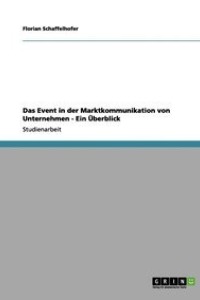
Liknande böcker
eOctopus in Hong Kong - A feasibility study
Bok av Ben Beiske
Research Paper aus dem Jahr 2003 im Fachbereich Wirtschaft - Marketing, Unternehmenskommunikation, CRM, Marktforschung, Note: 1.3 (A), 22 Eintragungen im Literaturverzeichnis, Sprache: Englisch, Abstract: This paper firstly examines the concept of eCurrency and how it has been used globally, and then highlights how this could be applied in Hong Kong. The situation in Hong Kong was assessed, and it is believed that Octopus is able to take advantage of its strong brand name and wide use taking its business online to an extended business model, termed eOctopus.The eOctopus model suggests that Octopus becomes an intermediary in online transactions where the users will have the option to set up an online Octopus account on the web. Money will be deducted for online and offline transactions, and money can be added at current Octopus terminals or via Internet banking. It will also allow users to shop and pay bills online.To test feasibility of this proposed new online-model, a survey of mainly undergraduate and graduate students in the School of Business and Management at HKUST was conducted. The results were found to be favourable to the proposed eOctopus model. Most significantly, the majority of respondents stated that they would use eOctopus because of Octopus' brand name.Further, an interview was conducted with Professor Tam of HKUST for his feedback on the proposed eOctopus model. Mr Tam commented that a key service that eOctopus can provide is micro-payment where credit card payments are not feasibly. According to Professor Tam, the eOctopus model is sensible and workable, though some technical issues would have to be addressed before a possible implementation.Given the current development concerning the introduction of a smartcard (including an eCertificate function) to replace the existing Hong Kong ID card, synergies are expected to exist if Octopus were to work together with the government on this issue. Since every resident in a Hong Kong is required to possess an ID card, Octopus would thus gain in trust and overcome security issues, as expressed by respondents. The Hong Kong government could benefit from this arrangement, since Octopus' technology and know-how regarding smartcards is advanced. If the eOctopus model is implemented in Hong Kong, it could then serve as a global role-model to the rest of the world, making eOctopus a successful eCurrency for online transactions possibly beyond the boundaries of HK.







